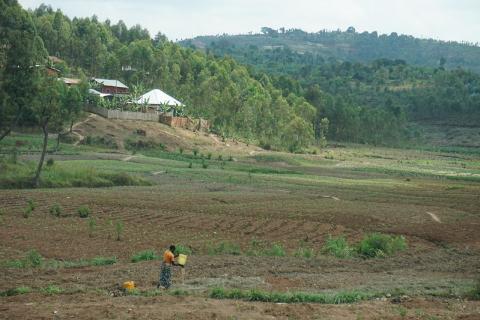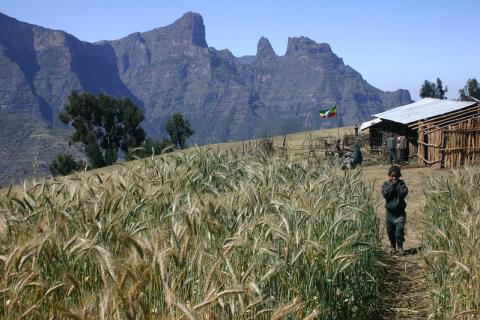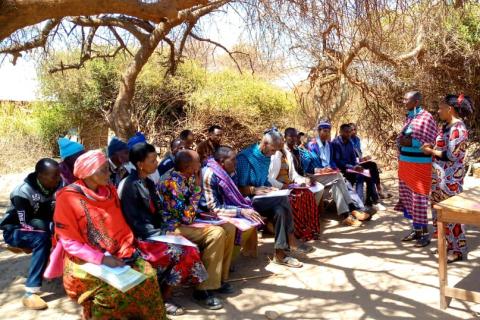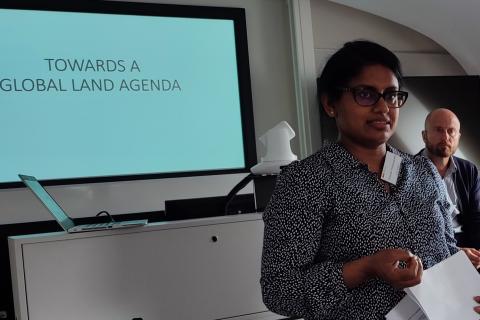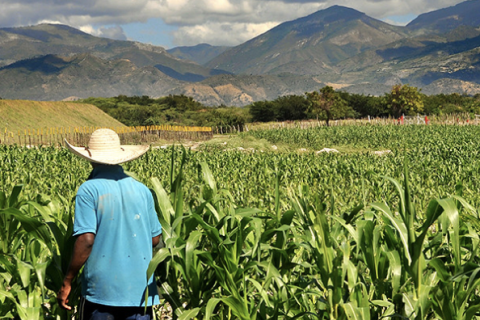Exploring the Implications of Supreme Court Ruling on 72,000 Acres of Prime Land in Ghana's Capital: An Analysis of Land Tenure Security
Ensuring secure land tenure is crucial for improving land development, as both local and foreign investors often hesitate to engage in land transactions when there is uncertainty about ownership rights. The term "Land Tenure Insecurity" refers to the apprehension that someone else might claim ownership of the purchased land in the future, creating a significant risk for investment. This phenomenon is particularly common in the Sub-Saharan African Region of which Ghana is no exception. The positive impact of land tenure security is far-reaching.
Promises and realities of land formalization in Africa
Has land formalization - as a type of land reform - delivered on the promises of improving tenure security, agricultural productivity and women's land access? Learn more in this data story.
Scaling out and over time for more inclusive land governance
Rather than scaling up, I think we should be talking about scaling out and scaling over time when it comes to inclusive, community-led land governance. I tried these ideas out with some success two weeks ago at the annual LANDac Conference in the Netherlands, specifically during a Round Table which asked “(how) can we scale bottom-up or community-based initiatives towards fair and inclusive land governance”?
Towards a Global Land Agenda: Shaping the Future of Land Governance
In a world grappling with numerous challenges related to climate change, socio-economic issues, and migration, the significance of land cannot be overstated. Land is not just a concern for the land community but for all communities, as it holds the potential to address critical global issues. Recognizing the need for a comprehensive approach to land governance, a global land agenda is being proposed. This blog explores the origins, objectives, and actions required to pave the way for effective land governance on a global scale.
Climate resilient land-use planning in Mozambique
From 6-18 November, Egypt will host the COP27 Climate Summit. This year marks the 30th anniversary of the adoption of the UN Framework Convention on Climate Change. Despite this long trajectory and the progress made, climate change has increasingly severe effects across the world. The LAND-at-scale program acknowledges the central role of climate change. In a short series of blogs, the knowledge management team highlights the diverse impact that climate change has on communities across the world, and how LAND-at-scale projects contribute to adaptation and mitigation measures on the ground.
Scaling – Definition, strategies and challenges to inform a learning agenda
Scaling is at the heart of both the name as well as the strategy of LAND-at-scale (LAS). Scaling and scaling potential are key in the way the program was designed and is reflected in the three pillars chosen to realize the aim of the program. The first pillar is about scaling successful initiatives and projects; the second pillar focuses on land governance innovations with scaling potential; and the third pillar covers knowledge management, with a focus on gaining a deeper understanding on the conditions required to make scaling successful.
Seeking inclusive, economical, and technical solutions for a sustainable land administration system in Mozambique
Mozambique has a progressive land law that came into place through a historically inclusive process. However, there are many obstacles to the proper implementation of the law, including the communities’ lack of formalized land tenure. Terra Firma, one of the LAND-at-scale partners in Mozambique, has worked on achieving tenure security for communities in Mozambique for a long time. To learn more from their experiences and strategies on how to do this in a sustainable way, LAND-at-scale interviewed Maria Muianga from Terra Firma.
Challenges to sustain tenure in Colombia: harmonizing indigenous traditions with ‘modernistic’ principles of economic growth
The LAND-at-sale project in Colombia was the first LAND-at-scale project to kick off. With its mid-term review just concluded, the project provides interesting insights into the challenges of not only achieving tenure security but sustaining it over time within a complex context. LAND-at-scale interviewed Piet Spijkers at Kadaster International, to learn more about their approach to achieve and sustain tenure security in Colombia through the LAND-at-scale project.
Learning from and scaling up tenure security approaches in Burkina Faso
Burkina Faso has a long history of land interventions aiming to achieve tenure security at the local level. The “Observatoire National du Foncier au Burkina-Faso” (ONF-BF) is one of the key players in the country working on mapping land rights within communities at commune-level. How does ONF-BF address the challenge of not only attaining tenure security through mapping, but ensuring these tenure rights last over time?

